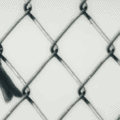(Note: Today, I am posting the first installment of a three-part story that is intensely personal. It begins with a great tragedy before God turns it into a story of redemption and freedom, though not in the way most people would think.)
My dad was one of my greatest heroes. Not only was he a decorated World War II veteran, who was wounded on the front in France, but he was throughout my life a man of great integrity and generosity. What he taught me about who God is and how to follow him, he did far less by his words than his example.
He was married to my mom for sixty-six years until she passed away. He had four sons and worked hard in his own vineyard to provide for his family. In addition, he was an active leader in whatever congregation he attended and helped many people find Jesus in dark and painful times. His passion for Jesus was infectious and few people I ever knew were more devoted, kind, and discerning.
So, the day two years ago when he turned on me without warning, making absurd accusations, shocked me to my core. Others close to him had manipulated his fears and vulnerability to convince him I was obstructing his medical care in an attempt to take control of him and his money.
Those words are excruciating to write. If you’ve heard me talk about my father, you know the deep regard I have for him. It was heart-breaking when he cut me off, unwilling to find out if any of the accusations he leveled at me were even true. It destroyed a lifelong friendship and I’m sharing this story now, not to expose the darker side of my family, but to encourage others who find themselves in similar situations. I find myself sitting with people every week who have endured similar things in their own family.
My dad has since passed away. Now that he knows what’s true without feeling any shame, I have no doubt he would want this story shared as well, not just for what it taught me, but also as a cautionary tale for those who think they are beyond delusion. Jesus warned us that at the end of this age, conflict would separate families. He even expressed his concern that darkness would be so strong that if the days weren’t cut short, even the elect would be deceived.
I consider my dad one of the elect. I know of no one who gave his life more fully to Jesus, who never made a dime from his service. Yet, no matter how closely any of us walk with God, we are not immune from being tricked by darkness and believing things that aren’t true.
This article is not about my father’s betrayal, but how God can redeem even the unmerited rejection of people we deeply love and respect. It happened to Jesus and, in the polarized climate we live in, it will happen to many others. Nothing has taught me more about God and how his kingdom works than walking with him through unmerited rejection. I assume this was the last lesson Jesus wanted me to learn from my dad, though I doubt he volunteered for it. Not only did it alter some deep places in my heart, it also prepared me well for a crisis I didn’t yet know was headed my way.
A Surprise Attack
I first recognized the shift in my dad’s demeanor seven years prior, not long after my mom passed away. I saw an anger in him I’d never seen before as he verbally attacked someone close to him who had thirty years earlier accused him and my mom of unspeakable acts. “You let my wife go to her grave with all your lies.” Though his words were accurate, the venom built up over those years was dark and destructive.
A few years later, I saw that same venom directed toward his pastor, whom he felt was resisting the Holy Spirit. He told me how he was going to confront him. Fortunately, I was able to talk him down before that conversation ever happened.
At the same time, his discernment about how Christ was leading him became more of a wish list. Preoccupied with why God was keeping him alive into his nineties when most of his peers had already passed on, he struggled to find meaning. He became more absorbed in Christian television and the revivalist fervor that was influencing many Charismatics. One day he told me that he had found his purpose: God was holding him here for the last, great revival where he would personally pray for thousands of people to receive the Holy Spirit.
His passions also turned political. One month before the 2020 election he said God had told him President Trump would win re-election. When that failed, he told me God would put him back in power by March of that year and then later in August. He wasn’t the only one saying such things, but he was completely certain he had it right.
When I asked him what mechanism would allow that to happen, he was dismissive of my “unbelief.” When I expressed concerns that he was living alone in a mountain community far from medical care, he said God had promised him that he wouldn’t be sick again, but simply die in his sleep one night at his home in Shaver Lake. When I asked him to at least consider if he was prophesying his preferences, he couldn’t see it.
I am always concerned when people find their comfort in false hopes because I know how painful they can be when their expectations don’t materialize. Even as he was talking about his good health, he was already battling bladder cancer. Then two years before he died, he fell and broke his hip. Soon after, he was diagnosed with melanoma and died in a hospice in Idaho, far from home.
But before that happened, he made it personal. One day, I walked into his hospital room while he was recovering from surgery for a broken hip to meet an icy glare. I had come to visit him for three days and help him arrange his finances for his future care. The day before we spent a delightful afternoon, reminiscing about our younger days. This was different. I’d seen that look before, but then it wasn’t directed at me. I had no sense it was this time, either. Unfortunately, I was wrong.
Concerned that he didn’t recognize me, I greeted him, “Hi Dad, it’s me, Wayne.”
He continued staring, a scowl twisting his face. After an awkward pause, he growled, “I know who you are.” His voice was ominous, threatening, and laced with rage. Surprised, I paused to appraise the situation.
After a few seconds, he started yelling at me, “What have you done? What have you done?”
I was caught off guard and had not a guess as to what he meant. “I’m sorry, Dad, I don’t know what you’re talking about.”
“Don’t lie to me. You know exactly what you’ve done.”
The next twenty minutes was a blur. He continued to make accusations that made no sense, and nothing I said made a dent in his suspicions or his rage. According to him, the doctor had told him that I was obstructing his medical care. Furthermore, he was also convinced I was there to forcibly remove him from the hospital and place him in a care facility near where I lived, all in an attempt to take control of his money.
Though none of that was remotely true, I had no ability to communicate hat to him. I told him I had not raised any issues with his medical team, nor would I force him to live anywhere he didn’t want to live. My entreaties we all rejected. He had put up a solid wall. “God told me you are a liar, and I will never trust anything you say again.”
I excused myself to seek out his doctor, who unfortunately had left that morning for a medical conference. His case manager followed me back to my dad’s room. I told her what my dad had said, and she assured him that I had not been an obstruction to his care in any way and that the team enjoyed working with me. He didn’t believe her and told her so to her face.
I hope to find out some day that this could all be blamed on dementia, but his doctor said he showed no signs of it medically, and his anger was only directed at me. His doctor called me the next day and when I asked why my dad thought I was obstructing his medical care, he felt horrible. “I was referring to his caretaker, not to you.” In the days that followed, I begged Dad to call him to find out for himself. He steadfastly refused and I don’t know that he would have believed him anyway.
I told him none of his accusations was true and that I was sorry he had come to believe such things, especially without ever talking to me. He grew increasingly agitated in my presence, so I asked if he wanted me to leave. He did. So, rather than spend the afternoon with him as I’d hoped, I found myself driving four hours back home, trying to figure out what just happened and what I should do about it.
Losing My Dad
It’s a good thing I had a long drive home. It gave me time to process my confusion and pain. I was angry, to be sure, more at those who lied to my father than at him. I had already known they were being less than honest with me about his care; now I knew they were also lying to him about me.
But what do I do now? On that drive and over the next few weeks, I called a few close friends to share my grief and seek their counsel. Initially, we all hoped God would find a way to healing for our family in this season of my dad’s life and help him get the care he needed. I held on to some hope that because it came out of nowhere, this mess would get straightened out in a few days when more reasoned heads prevailed. Attempts to do so, however, only led to doors slammed in my face, literally.
No matter what I said or did, Dad’s anger only grew as did his delusions. Anger makes it easy to identify the lies. Those who know the truth don’t get angry when they are not believed, knowing truth always wins out in the end. Every time we spoke, he leveled a new accusation more absurd than the earlier ones. He refused to listen to anything I said. Distorting every good thing we had shared over a lifetime, he even tried to weaponize my children and my wife against me. I finally came to realize I had lost my dad, and the people around him who knew better continued to play dumb.
My family has a long history of triangulating frustrations. Even at young ages we ran to Mom and Dad whenever we were unhappy with another brother to seek their validation and let them deal with it. In adulthood, it incubated an ugly rumor mill, and I had stopped playing that game decades before. I knew it would cost me one day, but not this—not my relationship with Dad.
One of my brothers, unbeknownst to me, had been venting his frustrations to Dad, blaming me for his discontent. When his new caretaker came, she added fuel to that fire because he’d also been talking to her. When my brother told me one day, over his latest angry tirade, that Dad agreed with him that it was all my fault, I asked Dad if that was true. He said he had heard my brother out but did not agree with him; he was only trying to comfort him and his wife. I reminded him he was only hearing one side of a painful story and if he was ever tempted to believe it, he might want to hear the other side. He assured me there was no need.
I came to find out after that, those conversations had only intensified behind my back in recent years. He had come to believe them without ever asking for my input. How did such a wise and discerning man fall for so many lies? My dad was never an angry man; he was a kind and gentle soul, firm but certainly fair. So, when his anger came at me with the most absurd accusations without any evidence to support them, it was quite out of character.
Over the years, I’ve noticed two things that leave people vulnerable to lies and delusion—fear and vengeance. When people are afraid something bad will happen to them or they give into anger for a real or perceived injustice, they cling to any comfort they can find, even in well-spun but untrue stories.
Participating in one-sided gossip certainly helped, as did the angry revivalist preachers who blamed the political left for delaying the revival my dad long hoped for. He was furious over the false accusations he had borne for more than thirty years, and somehow grew fearful his life would have no meaning. Furthermore, he grew frustrated that our country no longer embraced the moral foundation upon which he had built his life.
Combined with the limitations of his age, I’m convinced all these contributed to my dad’s delusion. I was no longer a Trump supporter. I do see his self-serving lies as an existential threat to the future of our democratic republic, not only because of the insurrection his words helped provoke but also by undermining our confidence in the Constitution itself. Like many other Charismatics, my dad came to see Trump as the force for good in the final conflict between good and evil. And, as he had been told, anyone who opposed Trump is on the side of demons.
Thus, it was not difficult for those around him to separate Dad from me. It triggered his hostility and gave him a focus for his frustration. When I could prove to Dad his accusations had no merit, he would retreat to, “I don’t believe you. This is what God told me.” Human conflicts are unresolvable when one side invokes the God-told-me defense, especially when you know they are wrong. And few things are more painful than when a close confidant becomes your chief accuser, denigrating every aspect of your personality to support the allegations they cannot defend any other way.
The last phone call I had with him a year before his death was the second-worse experience of my life. He told me that I was a fraud, that I could write beautiful things but not live them. God had shown him I would not be in heaven and that two years before, the Holy Spirit had left me and two demons had taken his place. Even then, I tried to find a way in, telling him how much I loved him and hoping we could find our way back to a tender and honest relationship. He concluded by saying we would never talk again, and we didn’t over the next year before his death.
I didn’t believe him even for a moment; this was not my dad. He was a far better man than this. I can’t begin to imagine what pain and doubt did to him when so many things he thought God told him didn’t happen. Lies twist us into horrible caricatures of our true selves. I prayed for him every day, hoping against hope for reconciliation before his passing, but somehow, I knew from that first day in the hospital that this was not going to heal in this life.
For sixty-eight years, he had been much more than my father. He was a close friend, confidant, and advisor in business and spiritual matters. He served on the leadership team of the congregations I helped pastor. I enjoyed talking with him as much as anyone and bore with him through the painful days of my mom’s death. We didn’t always agree but we were honest and gracious with each other, as we encouraged each other to follow Jesus as he seemed to guide each of us.
Among other things, he taught me how that the truth matters, how to listen and follow the voice of the Spirit, and that following him was more important than being popular or chasing the status quo. He taught me to trust God as provider when he watched two of his grape crops being destroyed by unseasonable rains. He taught me how to stand up against the powers of darkness that torment people from within, when no one else would deal with it.
And, in one of the lowest points of my life, nearly thirty years ago, he had read me the words of Jesus from the Sermon on the Mount: “Count yourselves blessed every time people put you down or throw you out or speak lies about you…” (Matthew 5:11 MSG) Blessed? I had to convince myself back then, but I have come to see what incredible power arises from dealing with rejection. Who would have thought that so many years later, Dad’s encouragement to me would apply to him? I’m sure he would never have wanted this, but his actions became a precious gift nonetheless.
The following two years provided a graduate level education in the power of enduring unmerited rejection. It changed me in deep and wonderful ways. I have come to see any suffering, especially that which is unjust, as fertile ground for the Spirit’s work of inviting us to a deeper love. I would be so grateful in days ahead for the lessons that found a home in my heart in this season.
___________________
Without referencing this exact situation, Wayne, Sara, and Kyle talked about Unmerited Rejection last year on The God Journey podcast, in case you wanted more information.









Pingback: The Last Lesson My Father Taught Me | Lifestream – The Faith Herald
Love you bro.
Thank you my friend.
Wow, Wayne. I’m so sorry this happened. I really appreciate you opening up and sharing your struggles. I can’t adequately explain how much your journey has helped me and given me things to think about. I don’t know what else to say other than thank you for sharing. Hang in there and god bless you.
Such a good lesson for us learned from your experience Wayne. We have a relative who plays the “ God told me” card a lot. What can you say to that? It’s also a tragedy that Christian Nationalism has caused such a deep divide among believers. We could learn from that old dictum, “ In essentials unity, in non essentials liberty, in all things charity.” Thank you for sharing your experience so others can benefit.
Thank you for sharing this gift of unmerited rejection. I have struggled with the same issues you had with your dad my whole life but never thought of it as a blessing until now. Matthew 5:11 Count yourselves blessed every time people put you down or throw you out or speak lies about you
Wow, what can I say Wayne? First thank you for having the courage to share such gut wrenching aspects of your broken relationship with your earthly father. I can relate how lonely and powerless it feels as we are currently struggling with a similar situation with one of our dear children. There are no words that can express the helpless feeling of a broken family relationship that seems to have no solution. All I can do is surrender to our dear Lord’s loving care and patiently wait. Looking forward to the conclusion of this series. Prayers will be added to you.
Thank you Wayne. Love you.
Pingback: Is Control the Opposite of Love? (#931) | The God Journey
Pingback: When Relationships Unravel (#932) | The God Journey